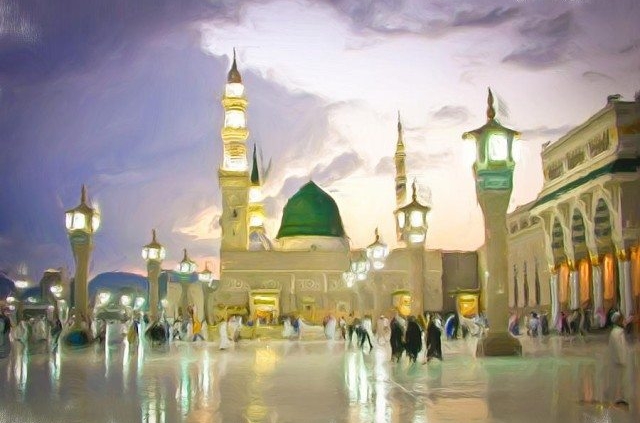Living in Madinah as a Christian.
Answered by Shaykh Abdurragmaan Khan
Question: Assalam alaykum,
I was thinking to go with my parents in Madina, and me with my father to Makkah. My mother is a Christian and my father is a Muslim and me too. I just found out that in Saudi Arabia it is prohibited for Christians to practice their religion freely. What are the consequences for one who practice freely? I’m scared to go Saudi Arabia thinking that if my mother would fast like Christians, they would harm her.
Answer: Wa alaykum al-Salam
Shukran for your question.
In terms of permissibility, your non-Muslim mother would be permitted to visit al-Madinah al-Munawwarah for a short period of time, such as the duration of Hajj. She is, however, not allowed to enter Makkah al-Mukarramah.
That being said, there are many non-Muslims, including 1.4 million Christians that live and work in Saudi Arabia. Based on what I have heard from some of them, they live freely, are able to practice their faith within their homes and are generally not troubled because of their faith. I don’t believe that you have any reason to fear that your mother will be punished or ill-treated. I do, however, suggest that you reach out or contact some non-Muslims or Christians specifically to get a better idea if you wish.
Please note that if your mother intends staying in Madinah, it is technically not permitted for her to live within the central district of Medina. (i.e. in the vicinity inside of King Faisal Road “1st Ring Road”). [wikipedia] This is a rule of the country and not one of Islamic law as such.
And Allah knows best
Wassalam
[Shaykh] Abdurragmaan Khan
Shaykh Abdurragmaan received ijazah ’ammah from various luminaries, including but not restricted to: Habib Umar ibn Hafiz—a personality who affected him greatly and who has changed his relationship with Allah, Maulana Yusuf Karaan—the former Mufti of Cape Town; Habib ‘Ali al-Mashhur—the current Mufti of Tarim; Habib ‘Umar al-Jaylani—the Shafi‘i Mufti of Makkah; Sayyid Ahmad bin Abi Bakr al-Hibshi; Habib Kadhim as-Saqqaf; Shaykh Mahmud Sa’id Mamduh; Maulana Abdul Hafiz al-Makki; Shaykh Ala ad-Din al-Afghani; Maulana Fazlur Rahman al-Azami and Shaykh Yahya al-Gawthani amongst others.
